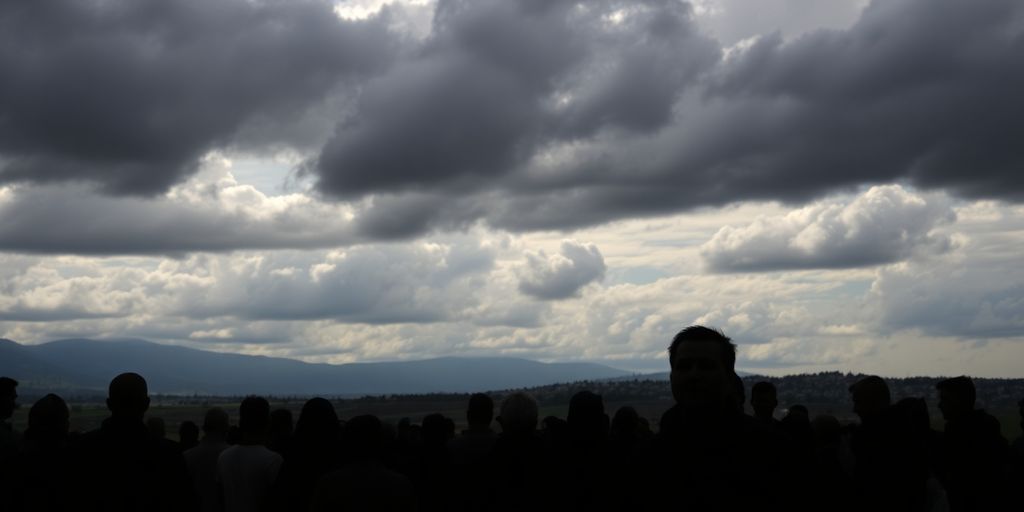Political tensions in Bosnia and Herzegovina have escalated following the controversial celebration of Republika Srpska Day, which has reignited discussions about secession and the region’s future within the country. The event has drawn sharp criticism from the European Union and other international bodies, emphasizing the need for unity and adherence to constitutional norms.
Key Takeaways
- The Constitutional Court of Bosnia and Herzegovina ruled that Republika Srpska Day is unconstitutional.
- Bosnian Serb leader Milorad Dodik has threatened secession if he is banned from political activities.
- Lawmakers in Republika Srpska have obstructed EU integration efforts, citing political motivations behind Dodik’s trial.
- The EU and international community have condemned the actions of the Serb parliament as a threat to Bosnia’s constitutional order.
Background of the Controversy
The celebration of Republika Srpska Day on January 9 has been a contentious issue in Bosnia and Herzegovina. The Constitutional Court ruled that the legislation establishing this day is not in line with the country’s constitution. Despite this ruling, the leadership in Republika Srpska, particularly Milorad Dodik, has continued to assert the importance of this day, framing it as a symbol of Serb identity and autonomy.
Dodik’s defiance has led to increased tensions, with the EU urging the Serb leadership to renounce divisive rhetoric and actions that threaten the sovereignty and territorial integrity of Bosnia and Herzegovina.
Dodik’s Secession Threat
In a recent interview, Dodik stated that if he were to be banned from political activities, the parliament of Republika Srpska would take immediate steps to declare independence and hold a referendum. This statement has raised alarms both domestically and internationally, as it echoes past sentiments that led to the violent breakup of Yugoslavia.
The anniversary of January 9 marks the day in 1992 when Bosnian Serbs declared independence, a move that precipitated a brutal conflict resulting in the deaths of approximately 100,000 people. The Dayton Peace Agreement, which ended the war, established Bosnia and Herzegovina as a state divided into two entities: Republika Srpska and the Federation of Bosnia and Herzegovina.
Political Standoff and EU Integration
The political standoff has further complicated Bosnia’s aspirations for EU membership. In an emergency session, lawmakers from Republika Srpska ordered their representatives in state institutions to obstruct any decisions necessary for EU integration. This move is seen as a direct response to the ongoing trial of Dodik, who is facing charges for defying international mandates.
The EU and several Western embassies have condemned this blockade, warning that it poses a serious threat to Bosnia’s constitutional order and could hinder the progress made towards EU membership. The international community has called for adherence to the rule of law and respect for court decisions.
Land Grabs and Secession Fears
In addition to the political turmoil, reports have emerged regarding land grabs in Republika Srpska, where authorities are allegedly seizing land from repatriates without legal justification. This has raised concerns about the region’s intentions to prepare for a potential bid for independence.
Dodik’s administration has been accused of marginalizing non-Serbs and undermining the rights of property owners, further fueling fears of secession and instability in the region.
Conclusion
The situation in Bosnia and Herzegovina remains precarious as political tensions rise over the celebration of Republika Srpska Day and the threats of secession from Dodik. The international community’s response will be crucial in determining the future of Bosnia’s unity and its path towards EU integration. As the country grapples with its complex political landscape, the stakes for its citizens and regional stability are higher than ever.
Sources
- EU Delegation in BiH comments on the Marking of RS Day – Sarajevo Times, Sarajevo Times.
- Political Standoff: Bosnia’s Serb Lawmakers Halt EU Integration Efforts | BalkanEU, Independent Balkan News Agency.
- Bosnian Serb Leader Dodik Vows Secession if Banned from Political Activity – Novinite.com – Sofia News Agency, Novinite.com.
- Initiative with 27 Signatures Submitted for the Dismissal of BiH Security Minister – Sarajevo Times, Sarajevo Times.
- Republica Srpska land grabs raise secession fears, MSN.






